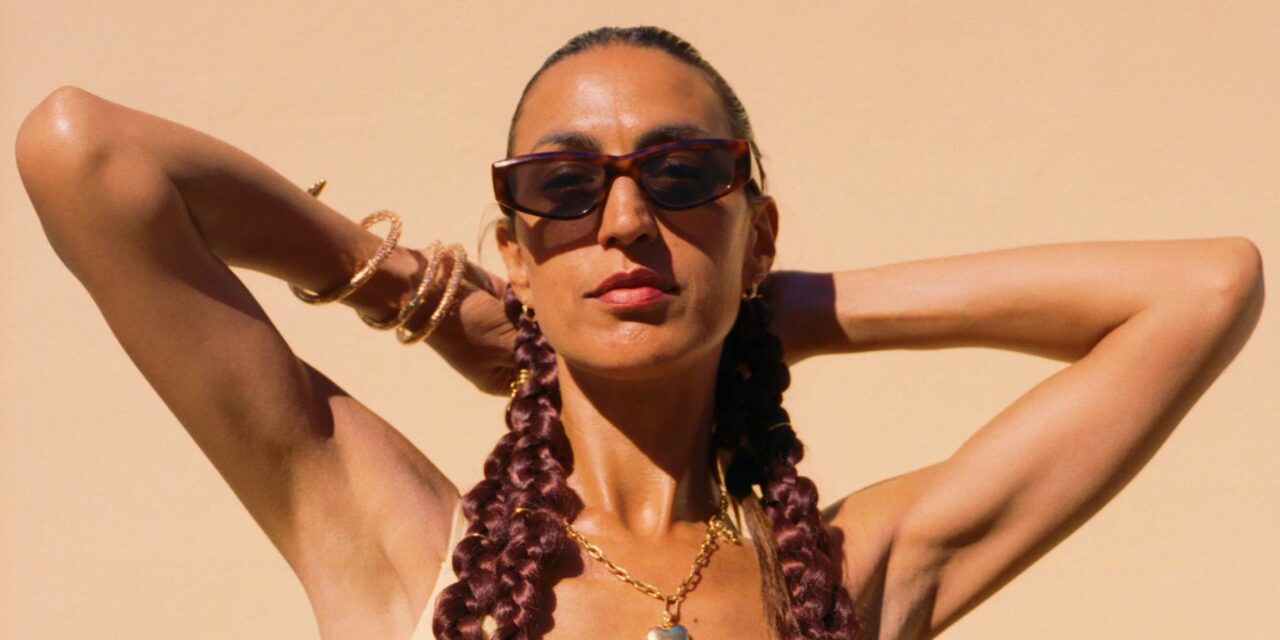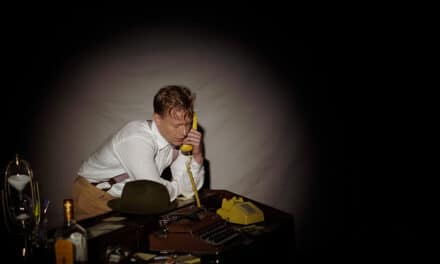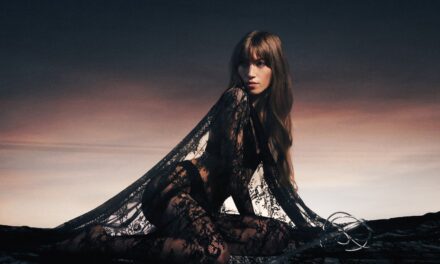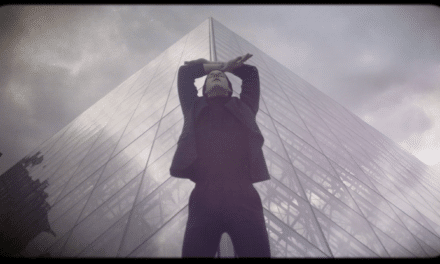Some songs don’t just play through your speakers—they plant themselves in your chest and start beating alongside your own heart. Canary Song, the latest release from Veronica, is one of those rare pieces of music. It’s tender without being fragile, political without posturing, and deeply personal while speaking to something far larger than the self. She calls it “protest music for the soft revolution”—a phrase that feels both poetic and tactical, like a banner you’d carry into a march where the weapons are voices, stories, and care.
The track opens with a steady, unshakable drumbeat—a rhythmic lifeline that Veronica describes as her way of “writing out of chaos and into strength.” It’s a song born from witnessing resilience up close: women who carry entire communities on their backs, who keep going regardless of the odds, who embody the kind of power that too often goes unseen or undervalued. But Canary Song isn’t just an anthem; it’s a meditation on finding joy and power in that strength, even when the world feels impossibly heavy.
Veronica’s creative path is anything but conventional—spanning social entrepreneurship, fashion, activism, and now self-produced music. Across each chapter, she’s carried the same core impulse: to make things that matter, to work in the in-between spaces where vulnerability and defiance coexist. That ethos runs through every note of Canary Song, from its hymn-like harmonies to its quietly radical call for reimagining the systems we live within.
And yet, for all its political gravity, there’s a pulse of gratitude that holds it together—an insistence on joy as a renewable resource, a reminder that building from hope can take us further than building from fear.
We caught up with Veronica to talk about the spark that ignited Canary Song, the heartbeat that keeps her moving, and why she believes the frontlines of the soft revolution might just start with reimagining the economy entirely.
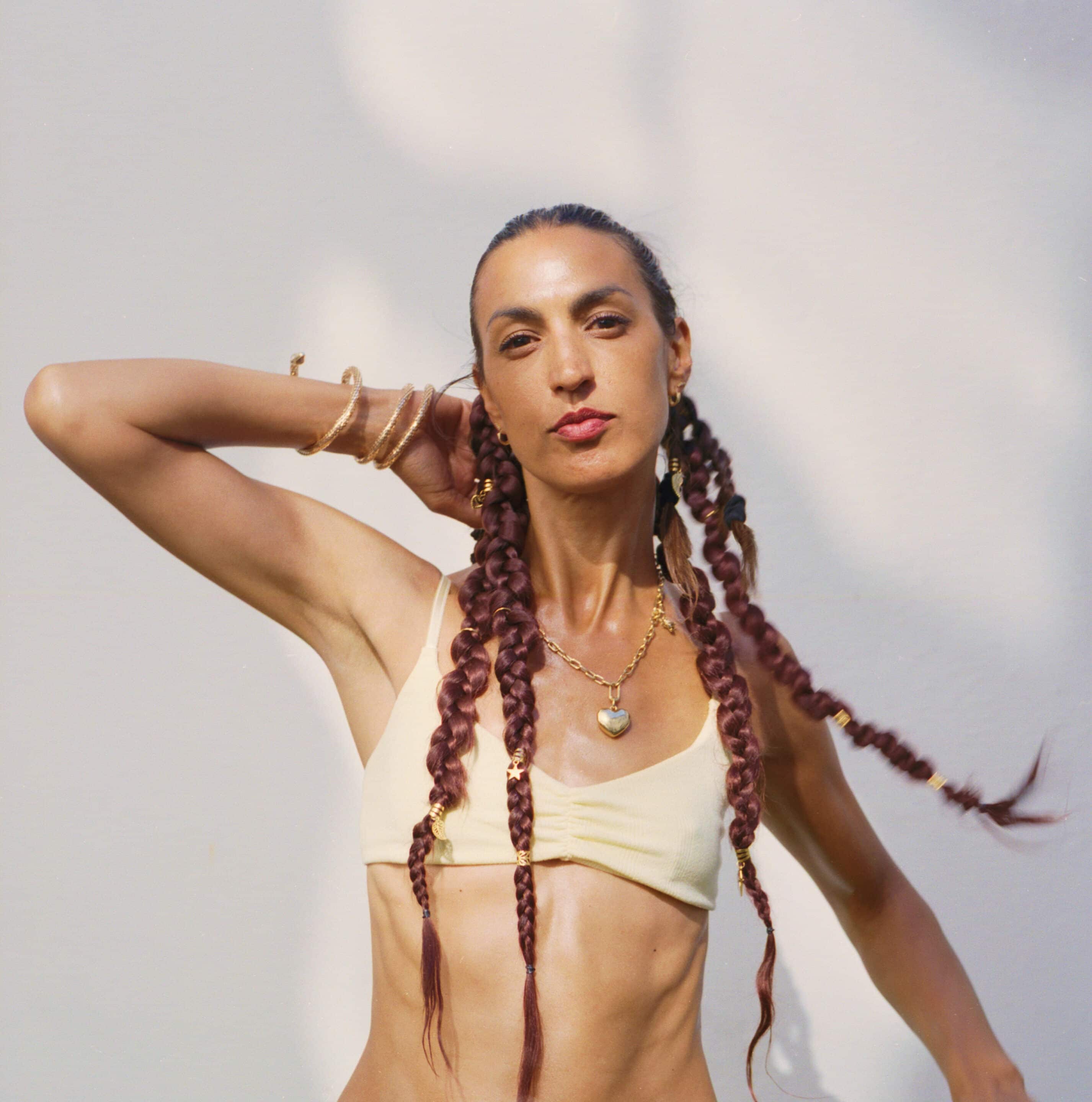
Canary Song feels like a slow-burning battle cry—both intimate and universal. What moment or realization first lit the spark for this track?
Thank you so much, I am so glad it resonates! The drumbeatstarted it for me. I was writing myself out of chaos and into strength, both personally and in the world. I found comfort in leaning into the sensation of a solid beat that would keep going, like a freight train. It reminded me of the power I have seen in women across the world, who carry entire communities, and keep going, no matter the circumstances. It feels like a time where we need that strength to be seen, celebrated and uplifted. This song became about discovering and honouring that strength and finding joy and power in it.
You’ve said this is a song for every woman who’s had to keep marching to her own rhythm. What does that rhythm sound like to you right now?
Like a heartbeat. It’s pulsing for global leadership to uphold human rights and international law. What we’re witnessing in Palestine is the collapse of our shared foundation—an entire people being denied the right to live, eat, and have a home. A genocide has been livestreamed for more than two years, while every major international NGO stands united—and still gets ignored. It’s cruelty beyond belief, and a global policy failure playing out in plain sight.
I believe we all have to find the courage and strength to use our voices now—as loud and clear as we can—to speak up in every way possible and anywhere possible. If we lose the foundation of human rights and global democracy, we lose them for everyone.
My heartbeat is also full of gratitude—watching my daughters play, making music, using my voice, feeling the joy of being alive. I believe building from joy and hope will carry us further than fear and pain, so I try to protect that rhythm—and nourish it, every single day.
Your background spans social entrepreneurship, fashion, activism, and now self-produced music. How do those different chapters feed into your creative voice—and how do you know when it’s time to start a new one?
I’ve always been drawn to making things—it’s the closest I come to feeling like a child again. And its really when I’m not concerned about where it will take me or give me, that I’m freest in creation. There’s a kind of naivety required to begin, a willingness to overlook the inevitability of failure and the cost of trying, and the older we get, the harder it becomes. So I’ve come to treat each project as a chance to stay humble, to stay learning. We live in an age where knowledge is miraculously accessible, and I use the entrepreneurial rhythmfor everything I do: try, fail, learn, begin again. I don’t separate the fields I’ve worked in—fashion, activism, music—they are just different expressions of the same impulse, the same values, the same world dreaming.
I usually know something new is coming when it begins to press against me. But starting things is much easier for me than finishing them. So these days, I keep a list above my bed—five projects I’ve promised to either complete or scratch. Nothing new can be added until something is crossed off. That’s the deal I’ve made—with myself, and with them. But I cant wait to add more to the list.
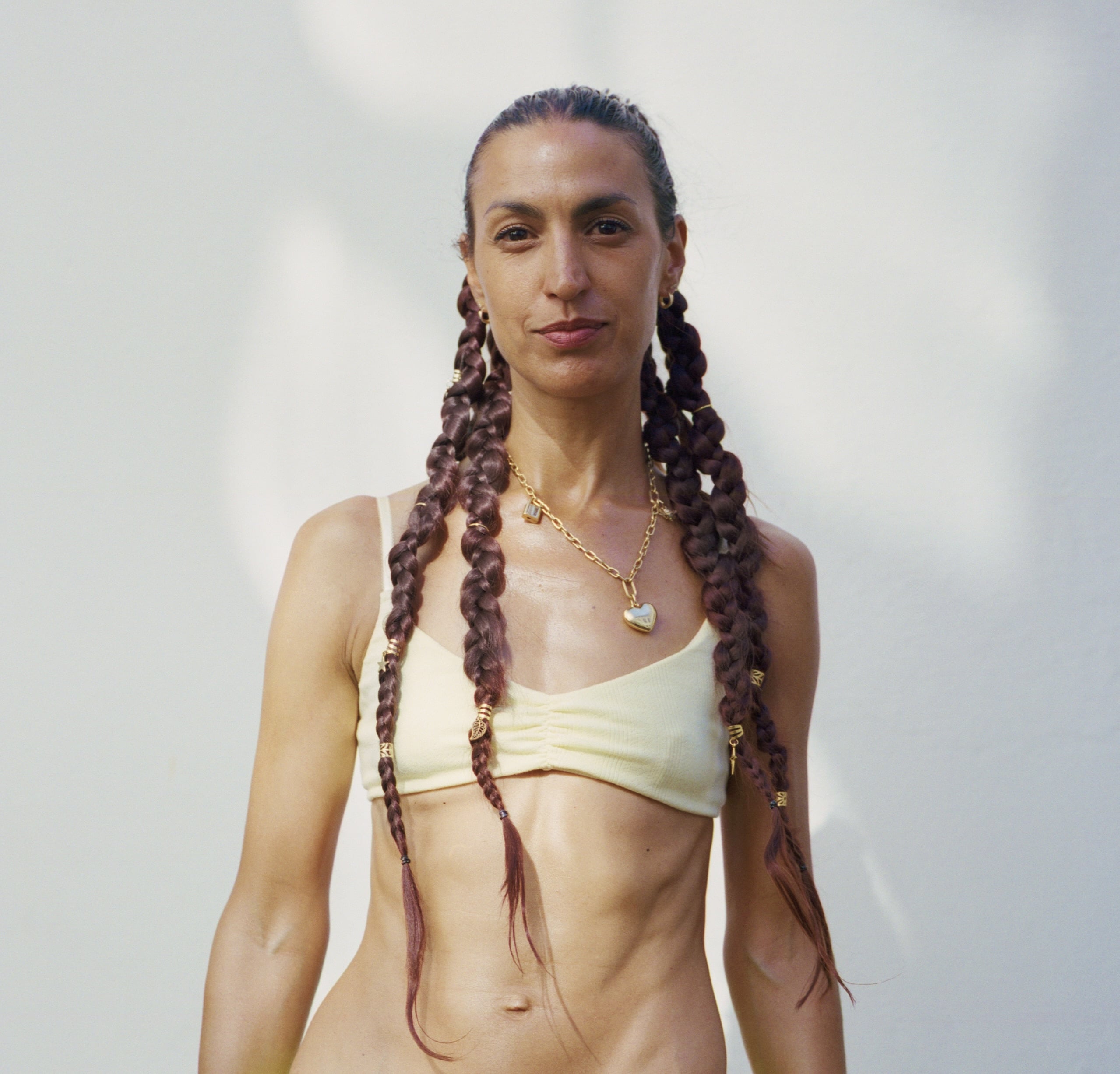
There’s a hymn-like quality to your harmonies, but also a quiet defiance pulsing beneath the softness. How do you balance vulnerability and strength—sonically and spiritually?
You are actually touching on a life theme of mine, thank you for noticing. Most of my songs live in the space between major and minor chords. That tension is where I feel most alive. I’ve always been drawn to what society hides, overlooks, or dismisses—like access to menstrual health or the rights of incarcerated women. I’ve worked with women most of my life, and I keep returning to the feminine—not just as softness, but as something raw, fierce, and powerful. That’s the space I’m writing from, too.
Nothing is ever just one thing. Stereotypes are not real. There’s always complexity—and often, unexpected beauty in that.
In many ways, my music is a continuation of exploring those in-between spaces. It’s a way of honoring nuance, embracing contradictions, and telling stories that don’t fit into either/or. We live in a world of headlines and soundbites, where nuance gets lost. But I believe caring about complexity is essential—if we want to grow, evolve, and stay human. My most fundamental value is to keep wondering, keep questioning, keep being curious. When I access that space in music, that’s when I know it’s a song I need to write.
You call this “protest music for the soft revolution.” What does that revolution look like to you—and who do you imagine standing at the frontlines with you?
It’s the economy. I think we should have a new one.
I studied economics as part of my degree because it’s the engine that runs everything—how we live, work, and relate to the world. And today, that engine is tuned for endless growth and profit at the expense of what actually matters: people, nature, collective wellbeing. It’s a death drive dressed up as “success.”
The truth is, the foundation for the economy we have now is just a construct – made up by a fairly homogenous group of men a while back. We can make up a better one. To me, the soft revolution is about doing exactly that—with care at the center.
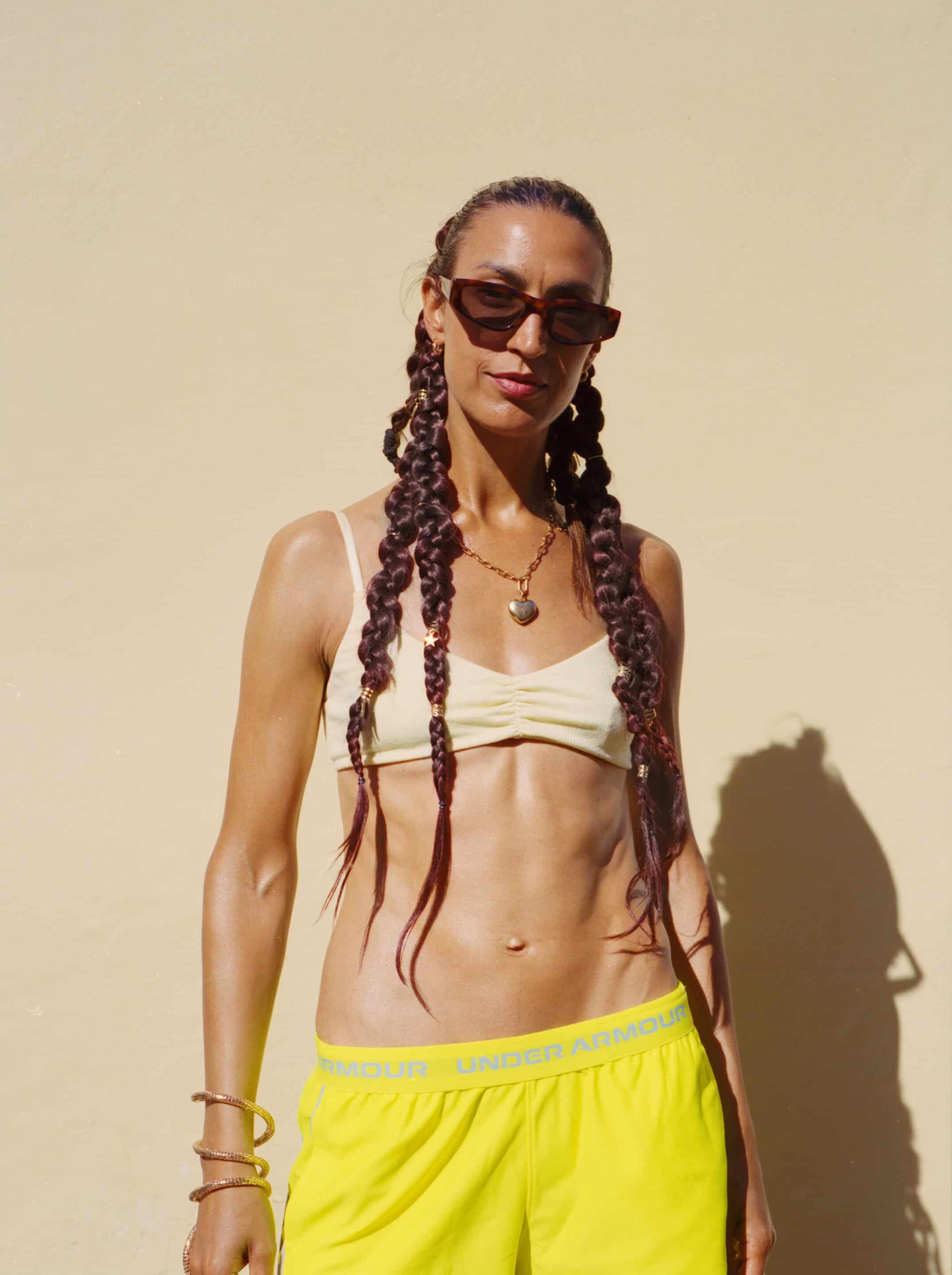
It’s about shifting what we measure, what we reward, and how we define success to serve human and planetary wellbeing. If we can make the economy work for us as a collective, we can sort so much of this out. Without it, we’re pissing against the wind.
The good thing is, there is a momentum. Reimagining the economy is having a moment of uprise across disciplines, across cultures. And we need to support it, imagine it, build for it, and believe in it. Some people might call it crazy, because it doesn’t neccesarily translate to the brokenness we are currently living in. But with fear of stating the obvious; how we attribute worth today, it what is crazy.
I think young people should lead the way, from all ways of thinking and living. We need a fundamental leap, and they’re less entangled in the old systems and more willing to imagine something radically better. And the rest of us need to back them—and clear space for the future they’re already building.
Thank you so much for asking caring questions.
With love, Veronica

